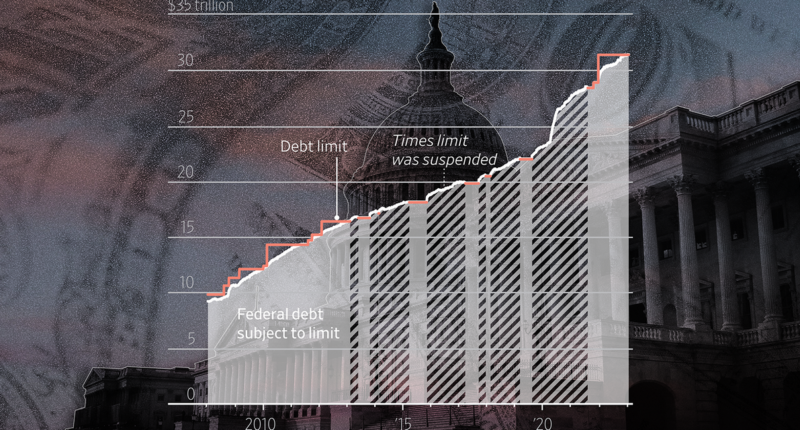
House Republicans passed a bill proposing to raise the nation’s $31.4 trillion borrowing limit in exchange for deep cuts in government spending. But with President Biden’s reluctance to make cuts, the bill faces an uncertain future in the Democratic-controlled Senate. Congress must raise the debt ceiling before the government runs out of money to pay its bills, which could happen as soon as June.
Approaching the ceiling can have consequences. S&P reduced the U.S.’s credit rating when Congress came close to not extending the limit in 2011. This downgrade increased the Treasury’s borrowing cost by about $1.3 billion in the fiscal year, according to the Government Accountability Office.
What’s News
Copyright ©2023 Dow Jones & Company, Inc. All Rights Reserved. 87990cbe856818d5eddac44c7b1cdeb8








